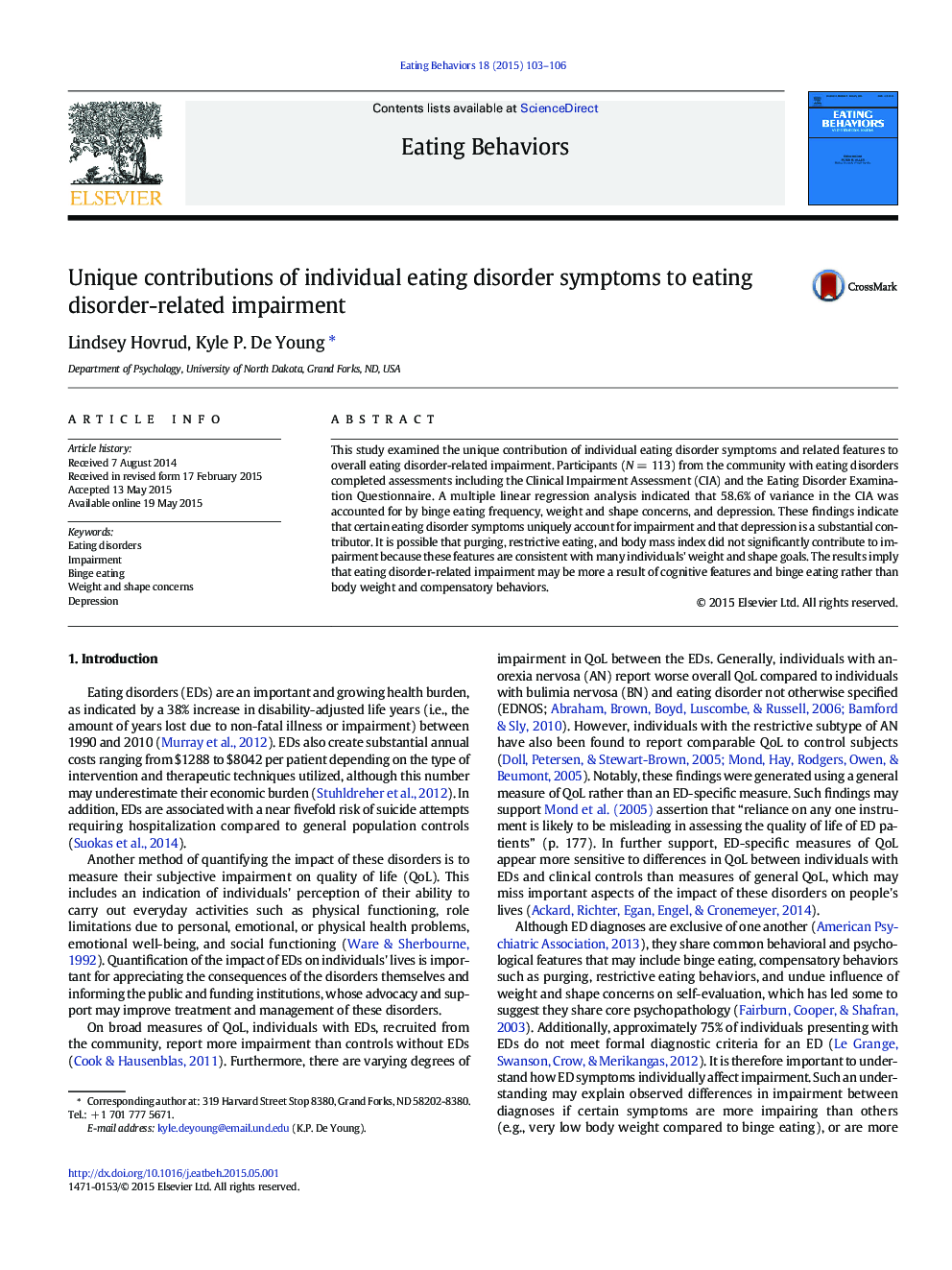| Article ID | Journal | Published Year | Pages | File Type |
|---|---|---|---|---|
| 906397 | Eating Behaviors | 2015 | 4 Pages |
•Binge eating and weight/shape concerns uniquely predicted impairment.•Restrictive eating was a predictor when depression was absent.•Depression was also a unique predictor, and the largest predictor of impairment.•Purging, fear of fatness, and body mass index did not uniquely predict impairment.
This study examined the unique contribution of individual eating disorder symptoms and related features to overall eating disorder-related impairment. Participants (N = 113) from the community with eating disorders completed assessments including the Clinical Impairment Assessment (CIA) and the Eating Disorder Examination Questionnaire. A multiple linear regression analysis indicated that 58.6% of variance in the CIA was accounted for by binge eating frequency, weight and shape concerns, and depression. These findings indicate that certain eating disorder symptoms uniquely account for impairment and that depression is a substantial contributor. It is possible that purging, restrictive eating, and body mass index did not significantly contribute to impairment because these features are consistent with many individuals' weight and shape goals. The results imply that eating disorder-related impairment may be more a result of cognitive features and binge eating rather than body weight and compensatory behaviors.
